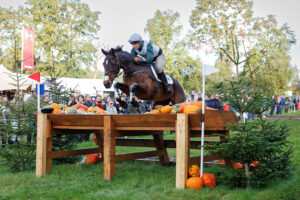Windrow Composting for Parasite Control and Waste Management

A group of University of Kentucky (UK) College of Agriculture equine researchers published a study recently in Veterinary Parasitology showing that windrow composting is effective and practical for parasite control and waste management on horse farms.
The research team consisted of Jessica Gould, graduate assistant; Mary Rossano, PhD, assistant professor; Laurie Lawrence, PhD, professor; Rosalyn Ennis, research assistant; and Steffanie Burk, graduate assistant, all from UK’s Department of Animal and Food Sciences, as well as Eugene Lyons, PhD, professor, from the Department of Veterinary Science.
According to the researchers, the study produced compelling evidence that windrow composting (the production of compost by piling organic matter or biodegradable waste into long rows called windrows) is an efficient and effective way of managing equine waste products while eliminating Parascaris equorum contamination. P. equorum is a parasitic nematode (worm) in horses that is abundant worldwide and is commonly referred to as the ascarid, or roundworm
Create a free account with TheHorse.com to view this content.
TheHorse.com is home to thousands of free articles about horse health care. In order to access some of our exclusive free content, you must be signed into TheHorse.com.
Start your free account today!
Already have an account?
and continue reading.
Related Articles
Stay on top of the most recent Horse Health news with


















